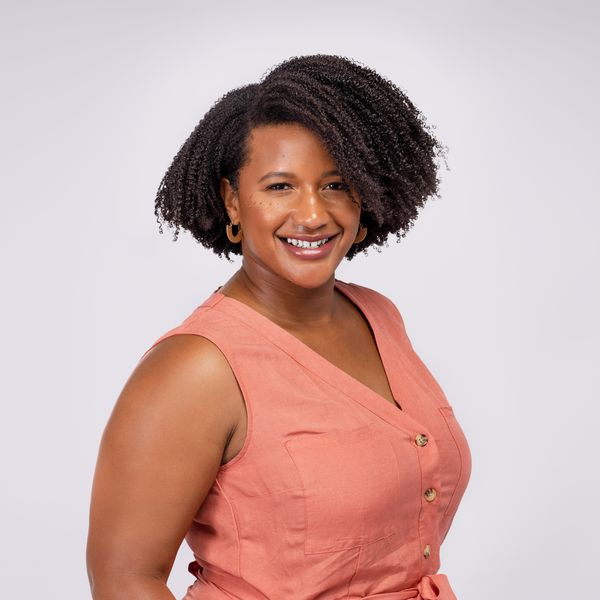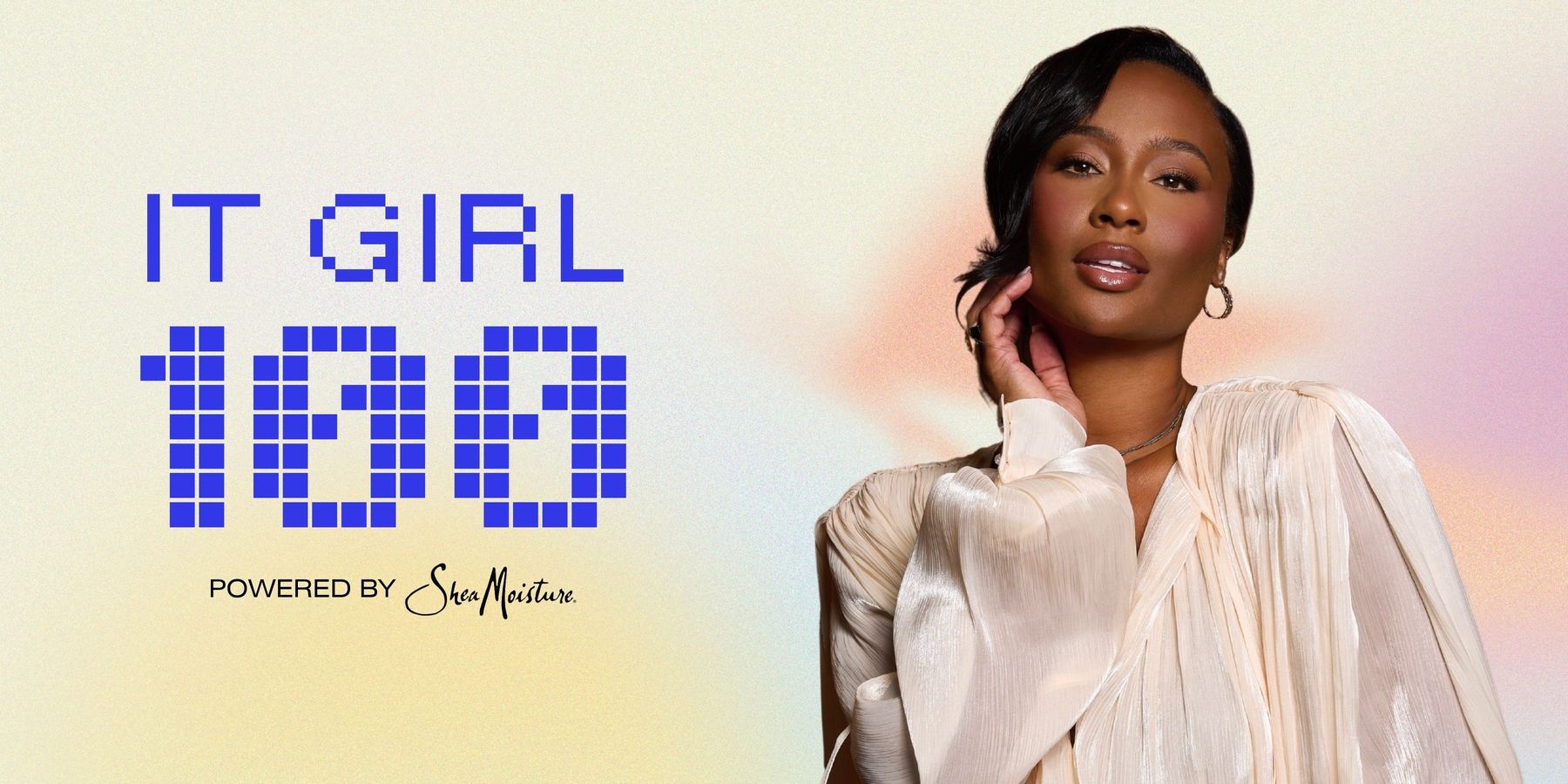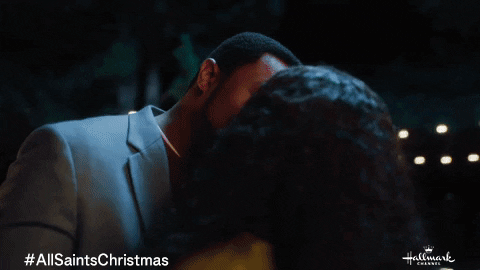The Brown Bohemians Are Carving Out Space For Blackness & Intersectionality On A Global Scale

The word "Bohemian" has been used throughout history to describe a person who is socially unconventional and involved with the arts. However, Black people are essentially invisible when it comes to the bohemian lifestyle, even though we are the very definition of art. Being the change they wished to see in the community was imperative to the bohemians behind The Bohemian Brands, co-founders Vanessa Coore Vernon and Morgan Ashley.
As two nomadic spirits who started their career journeys as best friends first, their vision for The Bohemian Brands was birthed from the mutual desire to add much-needed representation to the community. Through The Bohemian Brands, they dared onlookers to see the lifestyle not just in color, but to see it in Black. Besides being rooted in self-care, as a brand, intersectionality is also at top of mind for the two creatives who fused their ventures together to address the fully-realized expression of modern-day bohemian Black and brown humans.

Vanessa and Morgan Ashley are providing the keys to the kingdom, granting entry to the wonders of the world on a global scale through their thoughtful curation and cultural finds, all while making art and culture that much more accessible.
Vanessa and Morgan Ashley have no doubt created a business relationship built on mutual respect and a harmonious balance, truths that can be felt in every thoughtful detail of their brand. With Vanessa serving as Creative Director and Morgan Ashley as Director of PR and Operations, the co-creators are taking their vision a step further with the execution of their latest project, Brown Bohemians: Honoring the Light and Magic of Our Creative Community, a 200+ page full-color coffee table book. In it, the two curated a beautiful celebration of Black and brown people around the world who share their most honest truths while representing the complexity of creative communities.
Without further adieu, meet Vanessa and Morgan Ashley.
Where did the idea of Brown Bohemian come from?
Vanessa Coore Vernon: Brown Bohemian started as just an online platform originally just to highlight the creative energy and creative spirit of brown and Black people. Since Instagram has been around, it has really allowed us to take control of our own images and our own narrative more than we ever have before because there's no red tape. I think it really enables a lot of brown and Black people, in particular, to lean further into their creative endeavors, creative spirit, [as well as] create adventures. Also, to really honor who it is they are and not feel like they have to wait or be subjected to someone choosing or asking them to be a part of something.
What is the significance of describing Black and brown people as 'Bohemian'?
Vanessa: I wanted Brown Bohemians to be a place where we can gather the images, gather the people and highlight them to create a broader tribe of people that look like you, think like you, dress like you, and speak like you. When you think of Bohemian, obviously from the 19th-century context, it was artisans from lower-income that found creative ways to do things. We wanted to make sure that brown and Black people took up space when you looked up what a creative person looks like or what Bohemian looks like. I wanted to make sure that our images were there and our stories were there.
"When you think of Bohemian, it was artisans from lower-income that found creative ways to do things. We wanted to make sure that brown and Black people took up space when you looked up what a creative person looks like or what Bohemian looks like. I wanted to make sure that our images were there and our stories were there."

Courtesy of The Bohemian Brands
What was the transition from going to the social platform into the business side for Brown Bohemian?
Vanessa: The transition came when I realized that we don't own Instagram. We don't own any of these social platforms and all of this gathering that we've been doing will at some point wash away, and we had no control. I was like, how amazing would it be to have a book sell with these images, these people, and these stories? Especially when the majority of the books that I have in this same realm are white people through and through. There might be maybe one brown or racially ambiguous person, but for the most part, they don't necessarily look like us. That kind of initiated the process of wanting to turn Brown Bohemians into an actual book, a tangible book. Something you can hold, something you can pass, something you can share, something that lived outside of ourselves.
What is it like to run a business with your friend?
Vanessa: It's really difficult to run a business with anyone much less someone that you are friends with or in a partnership with. A lot of people literally will tell you from the very beginning don't partner with your friends because if something doesn't work out, you not only lose a partnership, you lose the friendship. The strength that has worked for me and Morgan is that we genuinely respect how each other works and we like each other and do our job. So, I don't concern myself with any part of her business and she doesn't concern herself with any part of mine. We don't micromanage each other and we know that each of us are doing our job. That's a big part of our work ethic.
Morgan Ashley: I think if you're going to do it, doing it in the way that Nessa described, is just super important. Because in my mind, there can't be two CEOs that do the exact same thing or two artists to do the exact same thing. I think that's why it's been able to work. I don't ever really see myself wanting to design or do those things. It doesn't excite me. I think that what I do does excite me, and the same for Nessa.
Being Black queer women, how has this influenced your brand and business?
Morgan Ashley: I'm definitely loud about being Black first and queer. Those are things that I advocate for and am extremely proud to be and identify as. Identifying as a woman, a black woman, and a queer Black woman is extremely important to me. I would like to say that I put a ton of attention behind it and always want to put it on the forefront, but it just happens organically because those are things that I'm so proud to be. It just comes across in everything that I do. Blackness and conversations around race and ethnicity are in everything. So whether it is us publishing this book that's for our community or we are going to a restaurant and are the only Black people at a table, it's a conversation that we have to talk about. So, for me, it comes across in everything that I do organically because I'm so proud to be and identify that way.
Vanessa: I wholeheartedly agree. The thing I love the most, and that I know within our brand and within ourselves, is it is something that happens consciously and unconsciously all the time. It shows that we are unapologetic about who we are and who we evolve to be. For me, it was less about labels or how you identify or what you believe and more about are you living in love authentically and living in your highest and best life. That was always the most important thing and I made sure in our brand everything represents the people that are a part of it.
"Identifying as a woman, a black woman, and a queer Black woman is extremely important to me. I would like to say that I put a ton of attention behind it and always want to put it on the forefront, but it just happens organically because those are things that I'm so proud to be. It just comes across in everything that I do. Blackness and conversations around race and ethnicity are in everything."

Why were you the ones to tell this story and did you have any self-doubt?
Vanessa: 1000%, [we had] all the self-doubt because, who are we to think that we can publish a book? Being women; brown and Black women, just in life in general you can find yourself always being pushed down, pushed in a corner; shoved down. I think you question and second-guess yourself more than other people in that same situation. These opportunities don't show up at our door. Essentially, we have to show up for the people that showed up for us. It's more about fighting through nervousness and eagerness and saying we are absolutely worth it, we are absolutely showing up as ourselves, and this project is bigger than that. There were people we reached out to in the community that sent us their images and their stories, and they trusted us. I always looked at it like, no matter what, this isn't about me, this is about them; showing up for these people that trusted us with their story. So, no matter what, I'm going to make sure I see it through.
Morgan Ashley: I joined the project for brand Bohemian only a couple of years ago. I haven't been here since its inception, so I don't have the same feeling regarding self-doubt. What kept coming up for me is fight or flight. At that moment when she asked me for help, I had to do it or she wasn't going to do it at all. I didn't have the time over the years to have the same feeling. I just remember thinking at that moment, 'Holy shit, we have to get this done.'
How did you come to the decision to write a book?
Vanessa: The decision came from knowing that we wanted it to live outside of the social platform and then trying our hand at self-publishing. We were not just telling our story, we wanted the stories of all of these different brown and black people around the world to have their story shared through their work and images. We found we were more of a vessel or a conduit. We have 53 different brown and black people that have a quote in the book or a whole feature. That itself is a rarity and very, very hard to do. But it was our job to just get as many people from different places and different backgrounds as possible telling their story. It was important to make sure that their stories directly came from them, and were highlighted.
We didn't want to send off all of these stories and all of their images to our publisher. For us, the part that made our book special and different is we did everything. It was every single image, the color tuning of it, editing the text, the layout, the concept; every single element was done by us, by the three of us. To look at this book, know that it's black and brown hands and black and brown energy that created it through and through. We have everyone from different places, different backgrounds melted into this book, but still made it feel seamless.
"Being women; brown and Black women, just in life in general you can find yourself always being pushed down, pushed in a corner; shoved down. I think you question and second-guess yourself more than other people in that same situation. These opportunities don't show up at our door. Essentially, we have to show up for the people that showed up for us. It's more about fighting through nervousness and eagerness and saying we are absolutely worth it, we are absolutely showing up as ourselves, and this project is bigger than that."

Courtesy of The Brown Bohemians
How did you create the images in the book?
Vanessa: In our community, we ride for each other, we show up for each other and that's literally how this happened. The people that are featured in the book are people we're inspired by and are our friends. Also, people whose work we aspire to collaborate with one day or that do beautiful stuff in our community. Everyone did this off the strength of the relationship we have or them being familiar with our brand or feel at ease to share their story. The book has a warm familiarity to it that can be rare and hard to find. It doesn't feel like this whole book happened outside of our community but happened within our community.
What is the Brown Bohemians book about in your words?
Morgan Ashley: I think what you'll see and feel is yourself as a person of color in a way that you have never seen yourself before. The coffee table book is really about Black and brown folks, but it's our voices in regards to curating it and then the voices of the people who are featured. I think you'll see yourself in a way that you haven't before and you'll see Bohemian described differently in a way that we haven't been before. People look very different in this book than you would see when you're Googling or looking up the word Bohemian. So that feels really authentic because we are as a brand who our community is, and it felt necessary to do.
Vanessa: These are pieces from this ongoing story, and no matter if it's this book or 50 books in the future; there would never be enough books to house the complexities of us, the creative spirits of us, or our contributions. But, this is just our art and adding something to this big puzzle that is important. We hope that you see yourself reflected back to you in some ways because the most important part of this book is that you feel a part of this community, you know you're a part of this community and you feel welcomed here.
For more of The Brown Bohemians, follow them on Instagram. Purchase the Brown Bohemians coffee table book by clicking here.
Featured image courtesy of The Brown Bohemians
Exclusive: Viral It Girl Kayla Nicole Is Reclaiming The Mic—And The Narrative
It’s nice to have a podcast when you’re constantly trending online. One week after setting timelines ablaze on Halloween, Kayla Nicole released an episode of her Dear Media pop culture podcast, The Pre-Game, where she took listeners behind the scenes of her viral costume.
The 34-year-old had been torn between dressing up as Beyoncé or Toni Braxton, she says in the episode. She couldn’t decide which version of Bey she’d be, though. Two days before the holiday, she locked in her choice, filming a short recreation of Braxton’s “He Wasn’t Man Enough for Me” music video that has since garnered nearly 6.5M views on TikTok.
Kayla Nicole says she wore a dress that was once worn by Braxton herself for the Halloween costume. “It’s not a secret Toni is more on the petite side. I’m obsessed with all 5’2” of her,” she tells xoNecole via email. “But I’m 5’10'' and not missing any meals, honey, so to my surprise, when I got the dress and it actually fit, I knew it was destiny.”
The episode was the perfect way for the multihyphenate to take control of her own narrative. By addressing the viral moment on her own platform, she was able to stir the conversation and keep the focus on her adoration for Braxton, an artist she says she grew up listening to and who still makes her most-played playlist every year. Elsewhere, she likely would’ve received questions about whether or not the costume was a subliminal aimed at her ex-boyfriend and his pop star fiancée. “I think that people will try to project their own narratives, right?” she said, hinting at this in the episode. “But, for me personally – I think it’s very important to say this in this moment – I’m not in the business of tearing other women down. I’m in the business of celebrating them.”
Kayla Nicole is among xoNecole’s It Girl 100 Class of 2025, powered by SheaMoisture, recognized in the Viral Voices category for her work in media and the trends she sets on our timelines, all while prioritizing her own mental and physical health. As she puts it: “Yes, I’m curating conversations on my podcast The Pre-Game, and cultivating community with my wellness brand Tribe Therepē.”
Despite being the frequent topic of conversation online, Kayla Nicole says she’s learning to take advantage of her growing social media platform without becoming consumed by it. “I refuse to let the internet consume me. It’s supposed to be a resource and tool for connection, so if it becomes anything beyond that I will log out,” she says.
On The Pre-Game, which launched earlier this year, she has positioned herself as listeners “homegirl.” “There’s definitely a delicate dance between being genuine and oversharing, and I’ve had to learn that the hard way. Now I share from a place of reflection, not reaction,” she says. “If it can help someone feel seen or less alone, I’ll talk about it within reason. But I’ve certainly learned to protect parts of my life that I cherish most. I share what serves connection but doesn’t cost me peace.
"I refuse to let the internet consume me. It’s supposed to be a resource and tool for connection, so if it becomes anything beyond that I will log out."

Credit: Malcolm Roberson
Throughout each episode, she sips a cocktail and addresses trending topics (even when they involve herself). It’s a platform the Pepperdine University alumnus has been preparing to have since she graduated with a degree in broadcast journalism, with a concentration in political science.
“I just knew I was going to end up on a local news network at the head anchor table, breaking high speed chases, and tossing it to the weather girl,” she says. Instead, she ended up working as an assistant at TMZ before covering sports as a freelance reporter. (She’s said she didn’t work for ESPN, despite previous reports saying otherwise.) The Pre-Game combines her love for pop culture and sports in a way that once felt inaccessible to her in traditional media.
She’s not just a podcaster, though. When she’s not behind the mic, taking acting classes or making her New York Fashion Week debut, Kayla Nicole is also busy elevating her wellness brand Tribe Therepē, where she shares her workouts and the workout equipment that helps her look chic while staying fit. She says the brand will add apparel to its line up in early 2026.
“Tribe Therepē has evolved into exactly what I have always envisioned. A community of women who care about being fit not just for the aesthetic, but for their mental and emotional well-being too. It’s grounded. It’s feminine. It’s strong,” she says. “And honestly, it's a reflection of where I am in my life right now. I feel so damn good - mentally, emotionally, and physically. And I am grateful to be in a space where I can pour that love and light back into the community that continues to pour into me.”
Tap into the full It Girl 100 Class of 2025 and meet all the women changing game this year and beyond. See the full list here.
Featured image by Malcolm Roberson
If there is one thing that I am going to do, it’s buy myself some scented soy candles. And, as I was looking at a display of them in a TJ Maxx store a couple of weekends ago, I found myself wondering just who decided which scents were considered to be “holiday” ones. The origin stories are actually pretty layered, so, for now, I’ll just share a few of ‘em.
I’m sure it’s pretty obvious that pine comes from the smell of fresh Christmas trees; however, scents like cloves, oranges, and cinnamon are attributed to two things: being natural ways to get well during the cold and flu season, and also being flavors that are used in many traditional holiday meals.
Meanwhile, frankincense and myrrh originate from the Middle East and Africa (you know, like the Bible does — some folks need to be reminded of that—eh hem — Trumpers) and ginger? It too helps with indigestion (which can definitely creep up at Thanksgiving and Christmas dinner tables); plus, it’s a key ingredient for ginger snaps and gingerbread houses. So, as you can see, holiday-themed scents have a rhyme and reason to them.
Tying this all in together — several years ago, I penned an article for the platform entitled, “Are You Ready To Have Some Very Merry ‘Christmas Sex’?” Well, in the spirit of revisiting some of that content, with a bit of a twist, I decided to broach some traditional holiday scents from the perspective of which ones will do your libido a ton of good from now through New Year’s Eve (check out “Make This Your Best NYE. For Sex. EVER.”).
Are you ready to check some of them out, so that, whether it’s via a candle, a diffuser, some essential oil, or some DIY body cream (check out “How To Incorporate All Five Senses To Have The Best Sex Ever”), you can bring some extra festive ambiance into your own boudoir? Excellent.
1. Vanilla
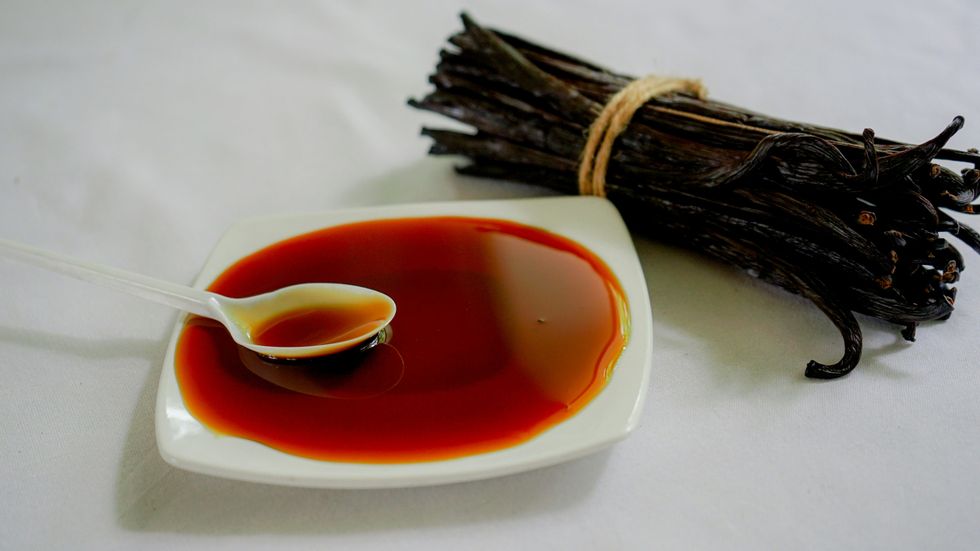
Unsplash
When it comes to holiday desserts, you’re going to be hard-pressed to find recipes that don’t include vanilla — and that alone explains why it is considered to be a traditional holiday scent. As far as your libido goes, vanilla is absolutely considered to be an aphrodisiac — partly because its sweet scent is considered to be very sensual. Some studies even reveal that vanillin (the active ingredient in vanilla) is able to increase sexual arousal and improve erectile dysfunction in men. So, if you adore the smell, here is more incentive to use it.
2. Frankincense
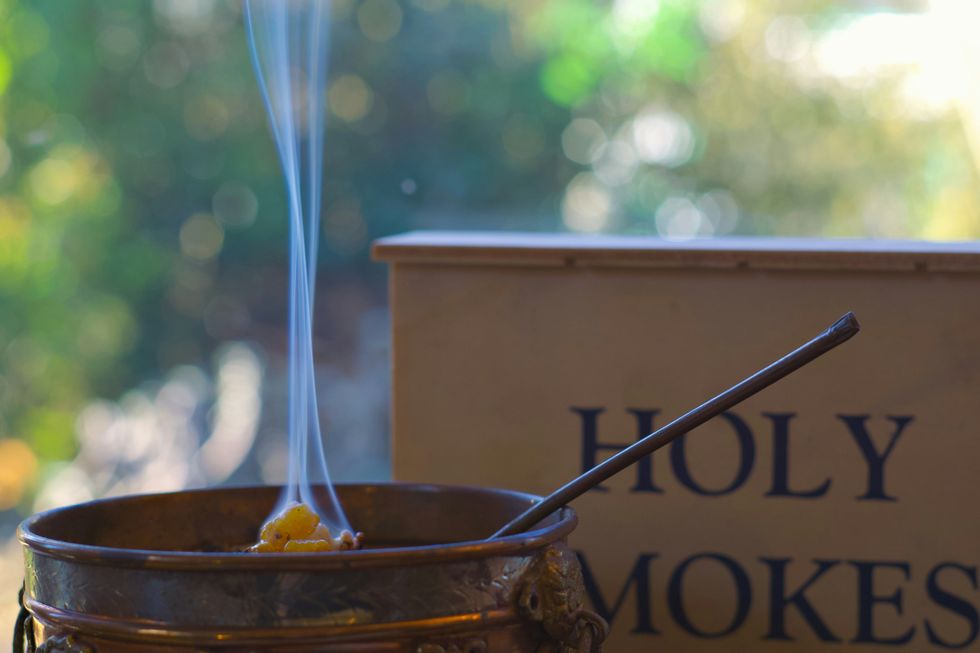
Unsplash
Although, typically, when people think about frankincense (and myrrh), it’s in the context of the gifts that the wise men brought Christ after he was born; it’s a part of the biblical Christmas story. However, frankincense goes much deeper than that. Sexually, since it has an earthy and spicy scent, some people like to use it to meditate (check out “What Exactly Is 'Orgasmic Meditation'?”). Also, since it has the ability to put you in a better mood, soothe and soften your skin and maintain your oral health — with the help of frankincense, every touch and kiss can be that much…sexier.
3. Cinnamon
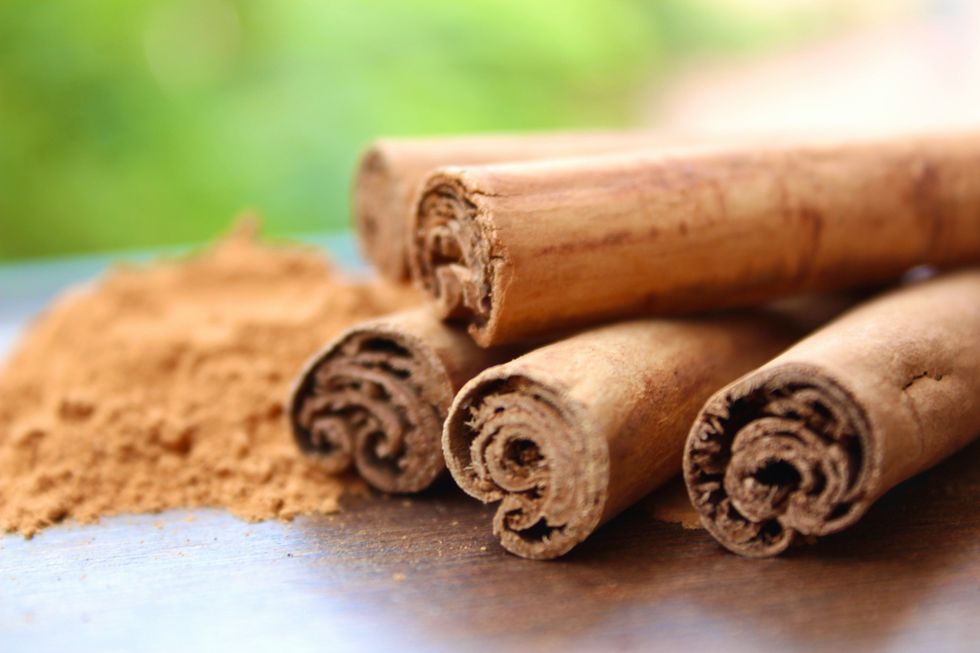
Unsplash
I already gave cinnamon a shout-out in the intro. Personally, I’ve been a fan of it, in the sex department, for a long time now (check out “12 ‘Sex Condiments’ That Can Make Coitus Even More...Delicious”). When it’s in oil form, it can be very sweet to the taste while sending a warm sensation throughout the body — which is why the giver and receiver of oral sex can benefit from its usage. Beyond that, cinnamon helps to increase blood flow to your genital region, elevate sexual desire and, some studies say that it can even help improve fertility. Beautiful.
4. Peppermint
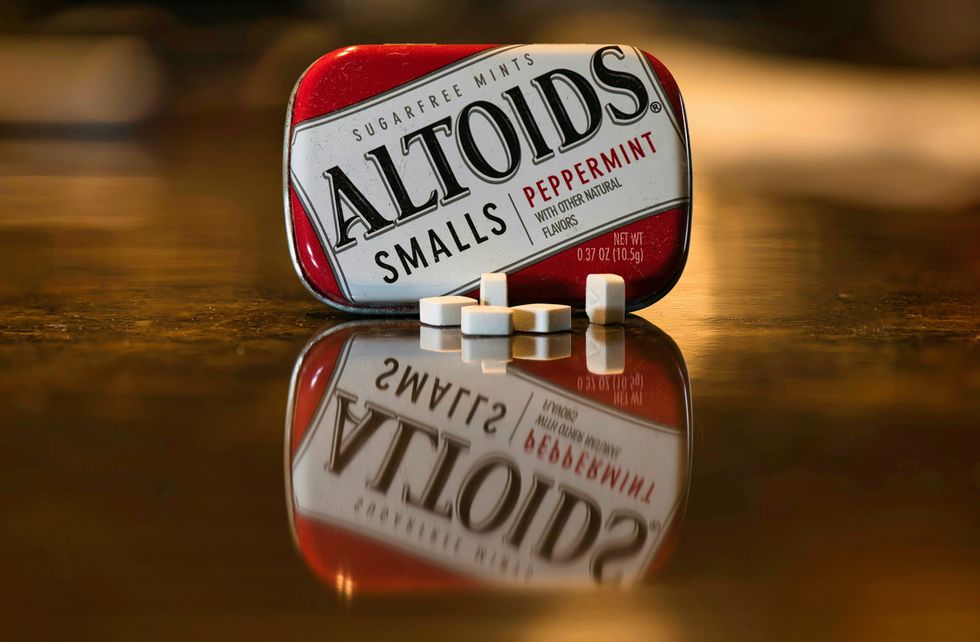
Unsplash
If there’s a signature candy for the holiday season, it’s probably a candy cane — which automatically puts peppermint in the running for being an official holiday scent. Pretty much, in any form, it’s got your sex life’s back because it’s hailed as being a sexual stimulant; in part, because its smell is so invigorating. Plus, it helps to (eh hem) ease headaches, it gives you more energy and it can definitely help to freshen your breath. Also, that minty sensation? The same thing that I said about cinnamon can apply to peppermint too (if you catch my drift).
5. Ginger
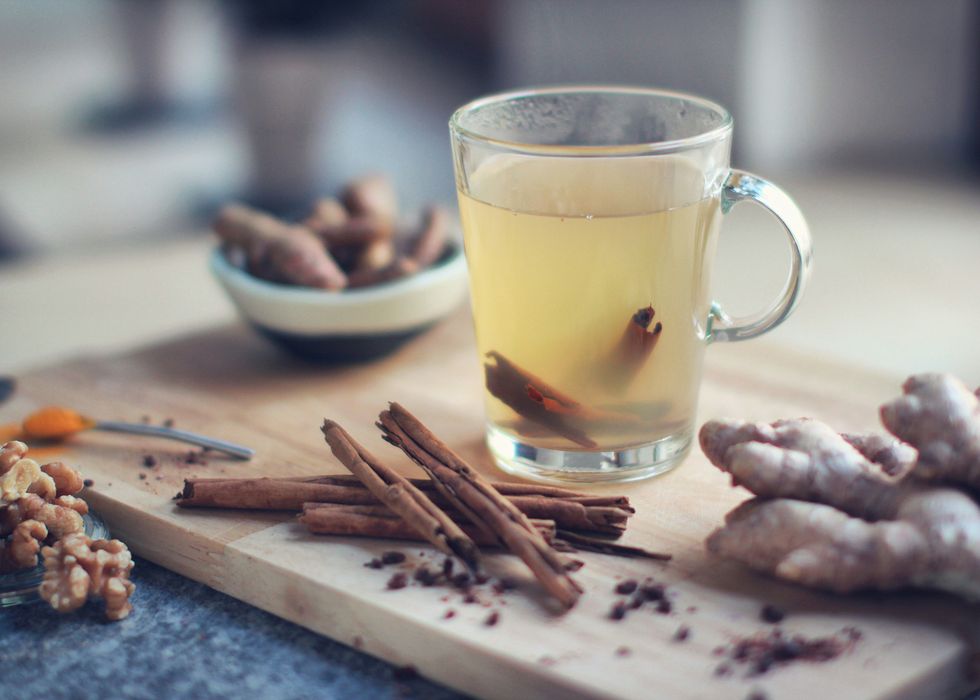
Unsplash
Whether it’s in a meal or in your bedroom, ginger is going to produce results that are hella spicy. On the sex tip, science has praised ginger for being able to increase sexual arousal, improve blood circulation (which intensifies orgasms) and strengthen fertility for many years. Scent-wise, I find it to be one that both men and women enjoy because it is both woodsy and sweet. So, if you’ve got some massage oil in mind, adding some ginger is a way to please you both.
6. Pomegranate

Unsplash
September through December is the time of year when pomegranates are considered to be in season. And, as someone who is a Rosh Hashanah observer, I have a personal adoration for them because I am aware of the various things that they symbolize in Hebrew culture including the fact that they are a fruit that represents love and fertility. So yeah, they would absolutely be an aphrodisiac — one that is perfect for this time of the year. While consuming it helps to boost testosterone levels in both men and women, the floral bittersweet smell that it produces can help to reduce stress while promoting relaxation (like most floral scents do) — and the more relaxed you are, the easier it is to climax.
7. Nutmeg
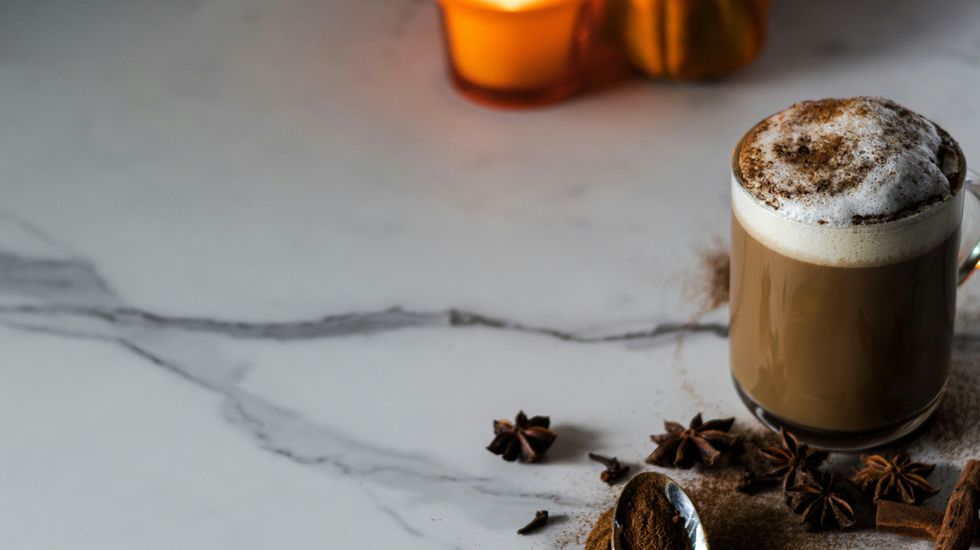
Unsplash
Another signature seasoning during the holiday season is nutmeg. It’s perfect in Thanksgiving sweet potato (or pumpkin) pie and Christmas morning French toast. And yes, it can also make your sex life better. If you consume it, it can intensify your libido and, overall, its warm-meets-spicy-meets-sweet smell is so inviting that it is considered to be a pretty seductive scent.
8. Cloves
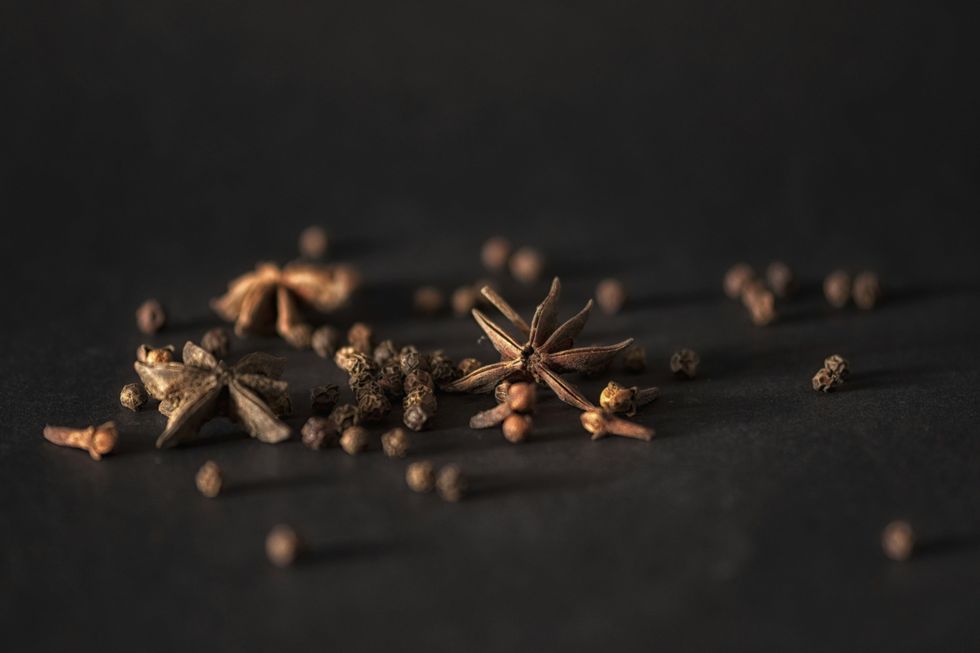
Unsplash
I ain’t got not one lie to tell you — if you’ve got a toothache, put some clove oil on that bad boy and send me a Christmas present for putting you on game. Aside from that, as I round all of this out, cloves are another holiday scent that can do wonders for your sex life. For men, it has the ability to significantly increase sexual arousal and improve stamina and endurance. For men and women alike, it also has a reputation for strengthening sexual desire. And for women solely? Well, if you want an all-natural way to increase natural lubrication down below — the scent and and feel (in DILUTED oil form) can make that happen. It can make the holidays especially special…if you know what I mean.
Ah yes — the atmosphere of the holidays and what it can do.
Take it all in! Scent ‘n whatever stimulating that comes with it! #wink
Let’s make things inbox official! Sign up for the xoNecole newsletter for love, wellness, career, and exclusive content delivered straight to your inbox.
Featured image by Giphy





